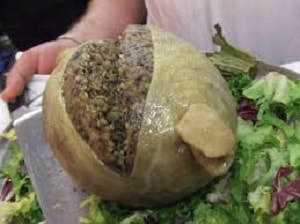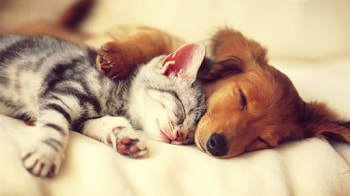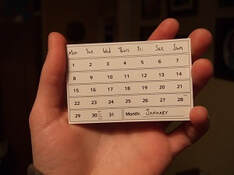David Tickner's Blog, page 36
January 25, 2021
Haggis
 Haggis, from Scottish Gaelic, is “a savoury pudding containing sheep’s pluck(heart, liver, and lungs), minced with onion, oatmeal, suet, spices, and salt, mixed with stock, and cooked while traditionally encased in the animal's stomach…. Although its description is not immediately appealing, haggis has an excellent nutty texture and delicious savoury flavour.”
Haggis, from Scottish Gaelic, is “a savoury pudding containing sheep’s pluck(heart, liver, and lungs), minced with onion, oatmeal, suet, spices, and salt, mixed with stock, and cooked while traditionally encased in the animal's stomach…. Although its description is not immediately appealing, haggis has an excellent nutty texture and delicious savoury flavour.”https://en.wikipedia.org/wiki/Haggis
Haggis may have originated in ancient times after a hunt when the perishable offal was quickly cooked inside an animal’s stomach and eaten on the spot.
The word haggis (a dish of chopped entrails) is from around 1400, perhaps from Old French hacheiz (minced meat) from agace (magpie); i.e., food seen as analogous to the odds and ends that the bird collects. Another suggestion is that haggis comes from Old Norse hoggva (to hew, cut, strike, smite, hack).
Haggis has been considered the national dish of Scotland since 1787 when the poet Robert Burns wrote a poem “Address to a Haggis.” Robert (Robbie) Burns and haggis are celebrated each year on 25 January, ‘Robbie Burns Day’.
Enjoy your haggis with a wee dram of Scotch whiskey. Maybe more if necessary.
Reference: Online Etymological Dictionary, https://www.etymonline.com/
Published on January 25, 2021 08:02
January 20, 2021
Hilarity, Hilarious
 Have you ever found something or someone to be hilarious? Have you ever been hilarious? The word hilarious evolved from simply meaning ‘cheerful’ in 1823 to being ‘boisterously joyful’ by 1835 (what might have happened in those twelve years?!).
Have you ever found something or someone to be hilarious? Have you ever been hilarious? The word hilarious evolved from simply meaning ‘cheerful’ in 1823 to being ‘boisterously joyful’ by 1835 (what might have happened in those twelve years?!).Have you ever been so exhilarated that you ended up in a state of cachinnation?! The words exhilaration and cachinnation are often a result of hilarity.
The word hilarious comes from hilarity, a word that came to English in the mid-15 century meaning cheerfulness, gaiety, merriment. Hilarious and hilarity come from Latin hilarus (cheerful, merry) and Greek hilaros (cheerful, merry, joyous). The words for being cheerful and joyful do not seem to have changed that much over the centuries. The experiences and feelings of cheer and joy probably have not changed that much either.
Interestingly, in its origins the word hilarity has its roots in words related to reconciliation; that is, in the happiness or joy that comes when a struggle or conflict is resolved. Greek hilaros comes from hilaskomai (to propitiate, appease, reconcile) and likely from the Proto-Indo-European (PIE) root selh (to reconcile); PIE selh is also the root of Latin solari (to comfort), later in English as solace.
The word exhilaration (the act of enlivening or cheering; the state of being enlivened or cheerful) is from the 1620s. The word comes from Latin exhilarationem (a gladdening) and exhilarare (to gladden, to cheer); from ex (out of, thoroughly) + hilarare (to make cheerful) from hilarus.
The word cachinnation (loud laughter), from the 1620s, is from Latin cachinnationem (violent laughter, excessive laughter) and cachinnare (to laugh immoderately or loudly). Its origins are unknown but the experience of such laughter seems common everywhere; for example, Latin cachinnare is related to Sanskrit kakhati (laughs), Greek kakhazein (to laugh loudly), Old High German kachazzen, and English cackle. People everywhere are always cracking up about something.
Why is cachinnation not a common word in English given that it represents such a common experience? Because this Latin term never took hold in English, it never replaced the Old English word hleahtor (laughter; jubilation; derision), Old Norse hlatr, Danish latter, and Old High German lahtar, all from Proto-Germanic hlahtraz, all of which had put down deep roots in Britain long before the post-1066 Latin influences arrived in force. Laughter, from the late 14th century, and laugh (the action of laughing, from the 1680s) are the words that stuck in the language.
By the way, do you know anyone named Hilary? Hilary is a proper name from Latin Hilarius (cheerful).
Reference: Online Etymological Dictionary, https://www.etymonline.com/
Published on January 20, 2021 15:12
January 16, 2021
Snuggle Fondle Cuddle
 What do these three verbs have in common? Hmmm? I know—they all end with the letters ‘le’. For some verbs, this ‘le’ ending suggests the repetition or intensity of an action. Can you see where this might be going?
What do these three verbs have in common? Hmmm? I know—they all end with the letters ‘le’. For some verbs, this ‘le’ ending suggests the repetition or intensity of an action. Can you see where this might be going?Snug, Snuggle
The word snug perhaps has its origins in Proto-Indo-European (PIE) kes(1) (to scratch) and in Scandinavian sources such as Old Norse snoggr (short-haired) and Old Swedish snygg and Old Danish snog (neat, tidy). By the 1590s, the word snug had come to English meaning compact and trim, especially in terms of a ship protected from the weather (i.e., ‘shipshape’).
The use of snug to meaning ‘to be in a sense of ease or comfort’ is from the 1620s. Snug meaning ‘to fit closely together’ (e.g., to ‘snug down’ your gear or your boat; or, in carpentry, to snug two pieces of word together; or, when, for some reason, two people chose to fit closely together) is from 1838. The expression ‘snug as a bug in a rug’ is from 1769.
When ‘le’ was added to snug in the 1680s to form snuggle, it suggested a frequency or intensity of comfort or of fitting closely together.
Fond, Fondle
The word fond comes from the early 14th century Middle English fonne (a fool, a stupid person) and fonnen (to be foolish, to be simple). By the late 14th century, the word fond came to English meaning deranged, insane (also, foolish, silly, unwise).
The words fonne and foonen are also the origin of the word fun. But that’s another story.
Fond, meaning ‘foolishly tender’ or ‘having strong affections for’ is from the 1570s.
When ‘le’ was added to fond in the 1690s to form fondle, it meant ‘to treat with indulgence and affection’. Fondle, in the sense of ‘to caress’ is from 1796.
Cuddle
Unlike the two words above, ‘le’ is not added to cudd to form cuddle. Rather, cuddle comes from the PIE root kwel(1) (to revolve, to move around) and kwol-o- (neck). From this source comes Latin collum (neck) and collare (necklace), then Old French coler (neck, collar), and by around 1300, the word collar (neck armor, something worn around the neck) had come to English. By the mid-15th century a collar was something could be worn by a person, a dog, a horse, or other animal.
What’s the connection to cuddle? The verb ‘to cuddle’ (to hug, to embrace so as to keep warm; to lie close or snug), from the 1520s, has uncertain origins. However, some suggest it may have originated in English as cull or coll (to embrace) from the word collar. Also, some suggest that the word was first used in relation to comforting small children by an embrace; for example, putting your arms around a child or putting your arm around a child’s shoulders.
Cuddle meaning a hug or an embrace for anyone is from 1825.
The word cuddle has nothing to do with the word cuddy. In medieval English, a cuddy was slang term for a horse or donkey. Also, Cuddy was an informal shortening of the name Cuthbert, just as Tom is short for Thomas and Dick is short for Richard (Liberman, 116, 119).
(By the way, I never thought that I’d ever post a such a picture on social media. I think that Covid is starting to get to me.)
Reference
Liberman, A. (2009). Word origins: And how we know them. Oxford: OUP.
Online Etymological Dictionary, https://www.etymonline.com/
Image: http://douglassquarepetclinic.com/
Published on January 16, 2021 20:34
January 15, 2021
Hunker
 Have you ‘hunkered down’ lately? Have you ever been asked to ‘hunker down’?
Have you ‘hunkered down’ lately? Have you ever been asked to ‘hunker down’?Hunker
Hunker is a Scottish verb of uncertain origin, from 1720, meaning to squat or crouch. Hunker may come from Old Norse huka (to crouch) or hoka (to crawl). The old northern British word hunker means haunch. The phrase ‘hunker down’, from 1902 in the Southern US, became more commonly used beginning around 1965.
The proper noun Hunker, from American English, 1849, meant a conservative old fogey and was a slang term used to describe conservatives of the US Democrat party in the 1840s. This version of Hunker is said to come from a local New York slang term, hunk, which meant post, station, home; hence, a Hunker was someone stayed safely at home. The word hunk or hunker was also said to be a local word for a curmudgeon, from an old British word, hunks, meaning a surly, crusty old person or miser.
Hunk
The noun hunk, from 1813, means a large piece cut off from something. The origins of the word hunk are unknown. Hunk, meaning an attractive or sexually appealing man, is from Australian slang around 1941 and American jive talk around 1945. More rudely speaking, a hunk was also a disparaging US slang term from the 1890s meaning an immigrant labourer from Central or Eastern Europe.
Hunky-dory, a term popularized in 1870s American popular culture, may also refer to New York slang used in children’s street games. Hunky-dory meant that you were in a safe place or base, perhaps from Middle Dutch honc (place of refuge, hiding place) which seems reasonable given that New York was a Dutch colony called New Amsterdam before the British arrived. Another theory is that hunky-dory is from Honcho Dori, supposedly a street in Yokohama, Japan, where, as noted in the Online Etymological Dictionary, “sailors went for diversions of the sort that sailors enjoy.”
Anyway, whether you’re a conservative hunk or a body builder hunk or a kid playing street games or a sailor on leave, all of us hear in the news these covid days that we need to hunker down.
Reference: Online Etymological Dictionary, https://www.etymonline.com/
Published on January 15, 2021 11:42
January 14, 2021
Reverence
The word reverence has its origins in the Proto-Indo-European (PIE) root wer(3)(to perceive, to watch out for) and Latin revereri (to stand in awe of, respect, honor, fear, be afraid of; to revere).
The word reverence comes to English in the late 13th century from Latin reverentia (awe, respect) and Old French reverence (respect, awe).
In brief, in its origins the word reverence is about the perceptions or feelings of awe or fear, respect or honor, related to something.
I find it interesting and provocative that the word beauty has its origins in PIE deu(2) meaning to revere as well as to show favor, to perform, to do. Note that PIE deu(2) is a verb—it indicates a response to something, not the quality of something. We show favor to something or revere something because of its qualities.
Speaking of ‘to revere’: for example, in his late 1st century book, Germania, the Roman historian Tacitus described how the Germanic tribes looked at forests and trees, not as gods or where the gods lived, but rather they looked at trees and forests with “the eye of reverence”; that is, with an eye to the beauty and wonder of nature and creation (and quite likely with respect for the gods of creation).
PIE wer(3) is also the source of words such as avant-garde, award, aware, beware, guard, panorama, regard, reverend, reward, vanguard, warden, and others.
See also BEAUTY.
The word reverence comes to English in the late 13th century from Latin reverentia (awe, respect) and Old French reverence (respect, awe).
In brief, in its origins the word reverence is about the perceptions or feelings of awe or fear, respect or honor, related to something.
I find it interesting and provocative that the word beauty has its origins in PIE deu(2) meaning to revere as well as to show favor, to perform, to do. Note that PIE deu(2) is a verb—it indicates a response to something, not the quality of something. We show favor to something or revere something because of its qualities.
Speaking of ‘to revere’: for example, in his late 1st century book, Germania, the Roman historian Tacitus described how the Germanic tribes looked at forests and trees, not as gods or where the gods lived, but rather they looked at trees and forests with “the eye of reverence”; that is, with an eye to the beauty and wonder of nature and creation (and quite likely with respect for the gods of creation).
PIE wer(3) is also the source of words such as avant-garde, award, aware, beware, guard, panorama, regard, reverend, reward, vanguard, warden, and others.
See also BEAUTY.
Published on January 14, 2021 13:39
Beauty
The word beauty has its origins in the Proto-Indo-European (PIE) root deu(2) (to do, perform; show favor, to revere). Note that PIE deu is a verb—it indicates a response to something, not the quality of something. We show favor to something or revere something because of its qualities.
From this PIE root comes Latin bellus (pretty, handsome, charming) and bellitatem (the state of being pleasing to the senses). Again, if something is pleasing to the senses of the observer, the response is to call that something pretty, handsome, charming. The old cliché, ‘beauty is in the eye of the beholder’, has a ring of truth to it.
Speaking of PIE deu(2) meaning ‘to revere’, in his late 1st century book, Germania, the Roman historian Tacitus described how the Germanic tribes looked at forests and trees, not as gods or where the gods lived, but rather they looked at trees and forests with “the eye of reverence”; that is, with an eye to the beauty and wonder of nature and creation (and quite likely with respect for the gods of creation).
The noun beauty (physical attractiveness; goodness, courtesy) came to English in the early 14th century from Latin via Old French and Anglo-French words. By the late 14th century, the word beauty was used to describe one’s perception based on some ‘classical’ criteria for what constitutes beauty, for example, as when referring to ‘a beautiful woman’. Again, the use of the word beauty says as much about the perceiver as it does about the person being perceived. Perhaps the phrase, “You’re beautiful” is a much an expression of respect, even love, as it is a description.
‘Beauty spot’, a dark spot placed on the face of a woman to heighten beauty, is from the 1650s. ‘Beauty sleep’ (that is, sleep before midnight) is from 1850. ‘Beauty contest’ is from 1885. ‘Beauty queen’ is from 1922 (before that, says the Online Etymological Dictionary, ‘beauty queen’ was a show-name for cattle and hogs at agricultural fairs—but let this one be just between you and me).
Other words from the PIE root deu(2) include beatify, beatitude, belle, belvedere, benediction, benefactor, benevolent, bonanza, bonny, debonair, and embellish.
See also REVERENCE.
From this PIE root comes Latin bellus (pretty, handsome, charming) and bellitatem (the state of being pleasing to the senses). Again, if something is pleasing to the senses of the observer, the response is to call that something pretty, handsome, charming. The old cliché, ‘beauty is in the eye of the beholder’, has a ring of truth to it.
Speaking of PIE deu(2) meaning ‘to revere’, in his late 1st century book, Germania, the Roman historian Tacitus described how the Germanic tribes looked at forests and trees, not as gods or where the gods lived, but rather they looked at trees and forests with “the eye of reverence”; that is, with an eye to the beauty and wonder of nature and creation (and quite likely with respect for the gods of creation).
The noun beauty (physical attractiveness; goodness, courtesy) came to English in the early 14th century from Latin via Old French and Anglo-French words. By the late 14th century, the word beauty was used to describe one’s perception based on some ‘classical’ criteria for what constitutes beauty, for example, as when referring to ‘a beautiful woman’. Again, the use of the word beauty says as much about the perceiver as it does about the person being perceived. Perhaps the phrase, “You’re beautiful” is a much an expression of respect, even love, as it is a description.
‘Beauty spot’, a dark spot placed on the face of a woman to heighten beauty, is from the 1650s. ‘Beauty sleep’ (that is, sleep before midnight) is from 1850. ‘Beauty contest’ is from 1885. ‘Beauty queen’ is from 1922 (before that, says the Online Etymological Dictionary, ‘beauty queen’ was a show-name for cattle and hogs at agricultural fairs—but let this one be just between you and me).
Other words from the PIE root deu(2) include beatify, beatitude, belle, belvedere, benediction, benefactor, benevolent, bonanza, bonny, debonair, and embellish.
See also REVERENCE.
Published on January 14, 2021 13:38
January 11, 2021
Relax
The word relax has its origins in the Proto-Indo-European (PIE) root sleg (to be slack, to be languid). I can just hear some of the ancient peoples, “I had a really sleg day a work” or “Hey, slegger, get your butt in gear!” or “Give me a bit of sleg, willya?”
From PIE sleg comes Latin laxus (loose; not to be confused with lexis) and laxare (to loosen). Latin re- (back, again, once more) + laxare = relaxare (to relax, to loosen, open, stretch out); e.g., to stretch out on the couch.
The verb ‘to relax’ (to make something less compact or dense) comes to English in the late 14th century from Old French relaschier (to set free, to soften, to reduce) from Latin relaxare.
Relax meaning to decrease tension is from the early 15th century. Relax meaning to become less formal is from 1837. Relax meaning to become less tense is from 1935.
So, what are we to make of the word exlax? Latin ex = from, out of, without, former. Ex + lax. “Yesterday, I was relaxed but, today, after the stresses of work, I am feeling very exlaxed.” Does exlax mean that I am ‘out of lax’? Hmmm…
Reference: Online Etymological Dictionary, https://www.etymonline.com/
From PIE sleg comes Latin laxus (loose; not to be confused with lexis) and laxare (to loosen). Latin re- (back, again, once more) + laxare = relaxare (to relax, to loosen, open, stretch out); e.g., to stretch out on the couch.
The verb ‘to relax’ (to make something less compact or dense) comes to English in the late 14th century from Old French relaschier (to set free, to soften, to reduce) from Latin relaxare.
Relax meaning to decrease tension is from the early 15th century. Relax meaning to become less formal is from 1837. Relax meaning to become less tense is from 1935.
So, what are we to make of the word exlax? Latin ex = from, out of, without, former. Ex + lax. “Yesterday, I was relaxed but, today, after the stresses of work, I am feeling very exlaxed.” Does exlax mean that I am ‘out of lax’? Hmmm…
Reference: Online Etymological Dictionary, https://www.etymonline.com/
Published on January 11, 2021 10:54
January 8, 2021
Zymurgist
 Feeling like you need a break? Feeling like you need some liquid refreshment? If so, pay a visit to your local zymurgist.
Feeling like you need a break? Feeling like you need some liquid refreshment? If so, pay a visit to your local zymurgist.Zymurgy, in its origins, means ‘juice work’!
Zymurgy is from the Proto-Indo-European (PIE) root werg (to do) and PIE yeue (juice). From PIE werg comes Greek ergon (work) and ourgia (a working). PIE werg is also the source of the word ergonomics as well as other work-related words like allergy, energy, liturgy, surgery, synergy, and George.
Greek zyme (a leaven), from PIE yeue, + ourgia = ‘leaven working’ or zymurgy. The word zymurgy comes to English in 1868 and is the branch of chemistry which deals with wine-making and brewing. A zymurgist is a chemist who works in a winery or a brewery.
Greek zyme, as you might expect, is also the source of the word enzyme, a biochemical term coined in 1881 by the German physiologist Wilhelm Kuhne (1837 – 1900).
But I’ll stop now. All this wordsmithing can make a guy thirsty. Time to head over to my local zymurgistical institution and get stocked up on some salted black porter. Yum.
Reference: Online Etymological Dictionary, https://www.etymonline.com/
Published on January 08, 2021 19:16
January 6, 2021
Epiphany
 Have you ever had an “Aha!!” moment or a “Eureka! Now I get it!”? Or, have you ever exclaimed, “Finally, I see the light!” If so, you have had an epiphany.
Have you ever had an “Aha!!” moment or a “Eureka! Now I get it!”? Or, have you ever exclaimed, “Finally, I see the light!” If so, you have had an epiphany.The word epiphany has its origins in the Proto-Indo-European root (PIE) root bha (to shine) and Greek phainein (to show). The word epiphany is from Greek epi- (on, close upon, to, in addition to) + phainein = epiphainein (to manifest, display, show off, come suddenly into view) and epiphaneia (manifestation, striking appearance, a festival held in commemoration of the appearance of a god at some particular place).
The early 14th century English word epiphany is from Old French epiphanie, Latin epiphania, and Greek epiphaneia. Epiphany, at that time and now, is the Christian festival of the manifestation the infant Jesus to the non-Jewish people of his time; in particular, to the three wise men of the Bible story, twelve days after Christmas, usually 6 January.
The use of epiphany to refer to divine beings other than Jesus is first seen in the 1660s. The use of epiphany in a general sense to mean any manifestation or revelation is from the 1840s.
The Merriam-Webster Dictionary defines the non-religious use of epiphany as a sudden manifestation or perception of the essential nature or meaning of something. An epiphany is an illuminating discovery, realization, or disclosure. Epiphany is also defined as an intuitive grasp of reality through some thing or some event that is usually simple and striking.
Other epi- words include epicentre, epidemic, epidermis, epilepsy, epilogue, episode, epistemology, epistle, epitaph, epitome, and many others; but not epic.
Reference: Online Etymological Dictionary, https://www.etymonline.com/
Published on January 06, 2021 08:08
January 2, 2021
Calendar
 Did you ever think of a calendar as something noisy? Does your calendar shout at you? Perhaps the events on your calendar are calling out for your attention!
Did you ever think of a calendar as something noisy? Does your calendar shout at you? Perhaps the events on your calendar are calling out for your attention!The word calendar has its origins in the Proto-Indo-European (PIE) root kele(2) (to shout). PIE kele(2) is the source of many ancient words; for example, Sanskrit usakala (the rooster’s dawn calling), Old Irish cailech (rooster), Greek kalein (to call) and kelados (noise), Old English hlowan (to low, to make a noise like a cow—does your calendar ‘mooove’ you?), and Latin calare (to announce solemnly) and clamare (to cry out).
The word calendar (the year divided systematically into days and months), first seen in English around 1200, comes from Old French calendier (list, register) and Latin calendarium (account book) and Latin calendae (the calends; i.e., the first day of the Roman month when debts were due and accounts were reckoned)—perhaps Benjamin Franklin was thinking of this when he coined the phrase ‘time is money’!
Latin calare (to announce solemnly, to call out) refers to proclamations from the priests of the temples announcing the new moon and the first day of a new month—the calends (imagine someone walking down your street proclaiming, “It’s the first day of the month!! Pay your debts!”).
And, lest we forget, the word calendar is not to be confused with the word calender (a cloth-presser)!
The word calendar is related to words such as acclaim, clairvoyance, clamor, clarify, class, clear, conciliate, council, declare, éclair, exclaim, proclaim, reconcile, and many others.
Reference: Online Etymological Dictionary, https://www.etymonline.com/
Published on January 02, 2021 08:30



